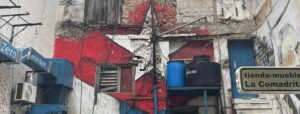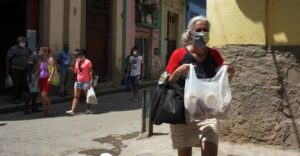Pope Benedict XVI will visit Cuba from March 26 to 28. He will celebrate two outdoor Masses, meet with Cuban President Raúl Castro, and visit with Cuban Catholic Church officials. This visit will draw the world’s attention to the economic and political changes underway; it will also raise important questions about the state of religious freedom in Cuba.
Conventional wisdom dictates that freedom of religion in Cuba is extremely limited; that churches are barely tolerated; that the relations between the Catholic Church and the Cuban Communist Party have improved little since the 1960s; that mutual hostility is the dominant motif in relations between churches and the state; that the Catholic Church in Cuba is eager to embrace the role that the Catholic Church played in Poland in the 1980s, serving as the spiritual voice for a nascent political opposition; and that the Catholic Church is not just the largest religious community in Cuba, but the only significant one. All of these assumptions are unfounded.
In the context of the Pope’s upcoming trip to Cuba, and with the hope of dispelling commonly held misconceptions, WOLA has prepared what we hope will be useful background information on the history and current state of religion in Cuba. This three-part series has been prepared by WOLA’s Program Director Geoff Thale, who has studied religion in Cuba extensively.
In Cuba, the Catholic Church is historically the largest and most important church. Most Cubans identify as Catholics, although a relatively small percentage attend Mass regularly and many also engage in some form of Afro-Cuban religious practice. Cuba also has a large and diverse Protestant community, as well as a small but vibrant Jewish community. The fact that Cuba’s religious community is so diverse and complex undercuts the notion that Cuba is an atheist country or that its government actively represses religious practice.
Although many priests and lay Catholics initially supported the Cuban Revolution, Catholic opposition became widespread once Castro began to implement his program. But even during a period of tense church-state relations and conflict, Catholic, Protestant, and Jewish religious communities continued to practice openly. During the 1980s relations between the Castro government and religious communities began to thaw. In 1992 the Cuban state constitution was revised to define Cuba as a “secular” rather than “atheist” state and by the Pope’s visit in 1998 Cuba had seen a dramatic improvement in freedom of religion. Overall, the relationship between church and state in Cuba has improved significantly since the 1960s.
Today, religious communities in Cuba face ongoing restrictions. But these restrictions are in many respects no different from the limitations placed on all Cubans—churches and synagogues are generally not singled out for discrimination. In fact, religious communities, particularly the Catholic Church, have gained an increasingly significant amount of space to promote debate about a range of social and economic issues. The Catholic Church has begun to play a unique and critical role in the process of economic and political opening in Cuba, illustrated most dramatically by its role in negotiating the release of 100 political prisoners in the past two years. What’s remarkable today is that, while tensions between church and state haven’t entirely disappeared, religious groups are playing an increasingly important role in shaping the future of Cuban society.
Geoff Thale is WOLA’s Program Director. Mr. Thale has followed issues of religious freedom in Cuba since the time of Pope John Paul II’s visit in 1998—conducting research, bringing Cuban religious leaders and scholars to the United States on a number of occasions, organizing public events on church-state relations in Cuba, and participating in a delegation of religious leaders to Cuba. More recently, Mr. Thale met with officials of the Catholic, Protestant, and Jewish communities in Cuba to discuss the Pope’s trip.
(Photo by Sergey Gabdurakhmanov)


